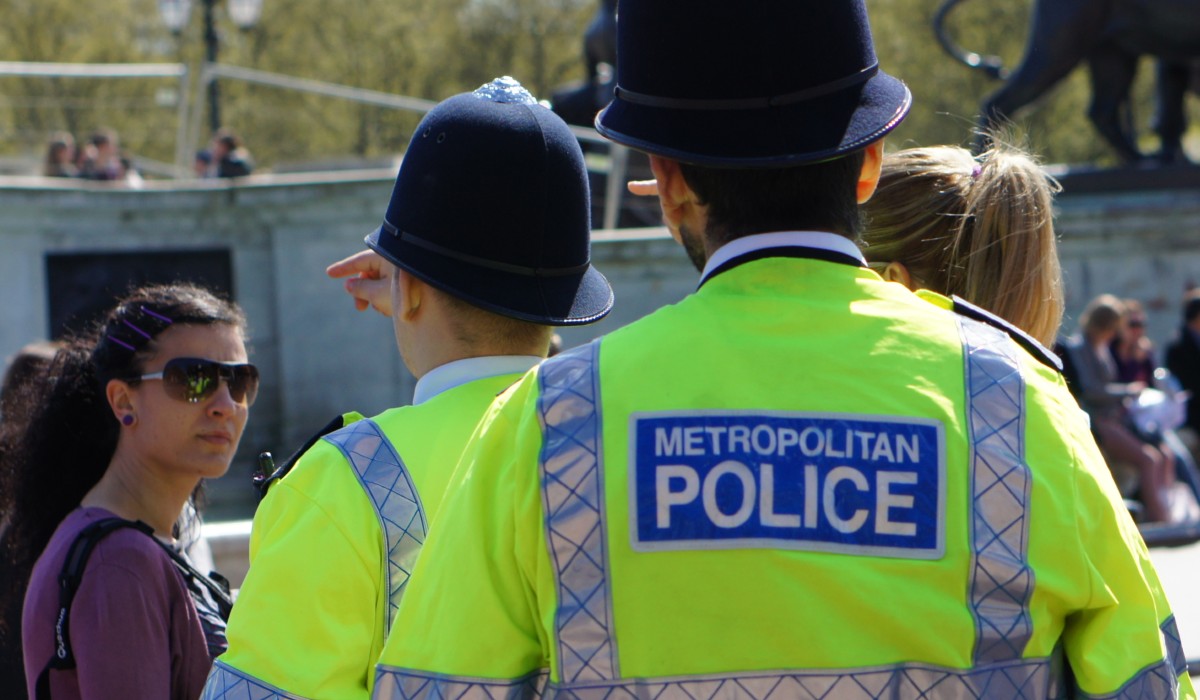 London Metropolitan Police. Photo: Yukiko Matsuoka / Flickr / CC BY 2.0
London Metropolitan Police. Photo: Yukiko Matsuoka / Flickr / CC BY 2.0
Lindsey German argues that the latest cases of violence against women reflect a system that is rotten to the core
Isn’t it time that something serious was done about the institutional sexism and misogyny in the Metropolitan Police and the collusion that obviously accompanies it? The latest gross revelations against David Carrick have uncanny echoes of the case of Wayne Couzens, who murdered Sarah Everard.
Both served in the parliament and diplomatic protection wing of the force, were therefore armed, had parliamentary passes, and used their position to abuse women.
Both had nicknames used by their colleagues which suggested the vilest of actions. Couzens was known as ‘the rapist’, Carrick as ‘bastard Dave’. This, we are told by the Met, wasn’t because of his treatment of women, but because of general nastiness.
Both had complaints against them from women which were ignored or dismissed by the Met, allowing them to carry out their crimes with impunity, in Carrick’s case for two decades.
Both acted out violent and degrading porn fantasies on women.
The Met has now said there are another 800 cases being investigated of members of their force accused of sexual crimes. At the same time we are told that there are around 1,000 police officers operating in UK schools, many of them no doubt in London. Last year we discovered the Child Q case where a young Hackney school pupil was strip searched by police.
These cases suggest an institution not fit for purpose and certainly not taking seriously the crimes of rape, domestic and other sorts of violence against women. It is this general dismissal of these crimes that leads to low levels of conviction in society as a whole and that allows serving armed policemen to continue in their daily duties.
The government is passing new laws to restrict our trade union rights and to deny us the right to protest. But there will be no such attempt to curtail the Met – especially since several MPs have also faced similar charges. Who will protect us from the law and the lawmakers?
Violence against women is a very specific feature of capitalist society and is part of women’s oppression. Even when we don’t suffer it as individuals, the threat of it is always coercive. In this sense it is quite different from other forms of violence. It shouldn’t be subsumed in talk of ‘sexual violence’ either – this is a specific way in which some men think they can treat women. While the majority of men will be appalled at these cases and don’t commit these brutal crimes, the culture of society allows them to continue. While women are regarded as inferior, sexual objects to be the playthings of men, while we are surrounded by images that reinforce these ideas, some men will think that they can behave in this way.
What’s particularly frightening in these cases is that we are encouraged to see the police as protectors. As ethnic minorities and many working-class people in general know, this is very far from being the case. We have a police force condemned for institutional racism and sexism. The strikes so far have not seen mass policing on picket lines, but the more they grow and are successful, the more likely that becomes. It’s not surprising that the police embody some of the most reactionary attitudes and behaviours of capitalist society. Those are the people they serve.
Join Revolution! May Day weekender in London
The world is changing fast. From tariffs and trade wars to the continuing genocide in Gaza to Starmer’s austerity 2.0.
Revolution! on Saturday 3 – Sunday 4 May brings together leading activists and authors to discuss the key questions of the moment and chart a strategy for the left.

